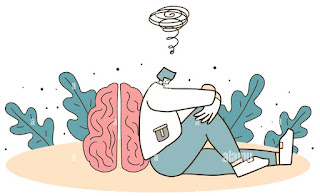‘Reducing the risk of Alzheimer’s disease’ Meet the Best Psychiatrists – Dr. Anuja Kelkar (MBBS, MD)

Reducing the risk of Alzheimer’s disease involves adopting a combination of lifestyle changes, engaging in activities that stimulate the brain, and maintaining overall health. Here are some strategies: 1. Healthy Diet: Focus on a diet rich in fruits, vegetables, whole grains, lean proteins, and healthy fats. Limit intake of saturated fats and sugars. Some evidence […]
How to Accept Autisum’ Meet the Best Psychiatrists – Dr. Anuja Kelkar (MBBS, MD)

Accepting autism involves understanding and embracing the neurodiversity within individuals with autism spectrum disorder (ASD) and recognizing their unique strengths, challenges, and perspectives. Here are steps to foster acceptance: 1. Educate yourself: Learn about ASD from reliable sources to gain a better understanding of its characteristics, challenges, and the experiences of individuals with ASD. 2. […]
‘Drug abuse’ Meet the Best Psychiatrists – Dr. Anuja Kelkar (MBBS, MD)

Drug abuse refers to the excessive and harmful use of substances, leading to significant physical, psychological, and social consequences. Key features include: 1. **Compulsive Use**: Engaging in the repeated use of drugs despite awareness of adverse effects on health, relationships, or daily functioning. 2. **Physical Dependence**: Developing tolerance, where increasing amounts of the drug are […]
Epilepsy in Children’ Meet the Best Psychiatrists – Dr. Anuja Kelkar (MBBS, MD)

Epilepsy in children presents unique challenges due to their developing brains and the impact of seizures on growth, learning, and social development. Common causes include genetic factors, brain malformations, infections, and perinatal injuries. Early diagnosis is crucial for initiating appropriate treatment and minimizing developmental delays. Treatment typically begins with antiepileptic medications tailored to the child’s […]
Female mood disorder treatment’ Meet the Best Psychiatrists – Dr. Anuja Kelkar (MBBS, MD)

Treating mood disorders in females involves considering gender-specific factors and tailoring interventions accordingly. Key aspects of treatment include: 1. **Therapy**: Cognitive-behavioral therapy (CBT) and interpersonal therapy (IPT) address issues common among women, such as societal expectations, relationships, and self-esteem, helping develop healthier coping mechanisms. 2. **Medication**: Antidepressants and mood stabilizers may be prescribed, with consideration […]

